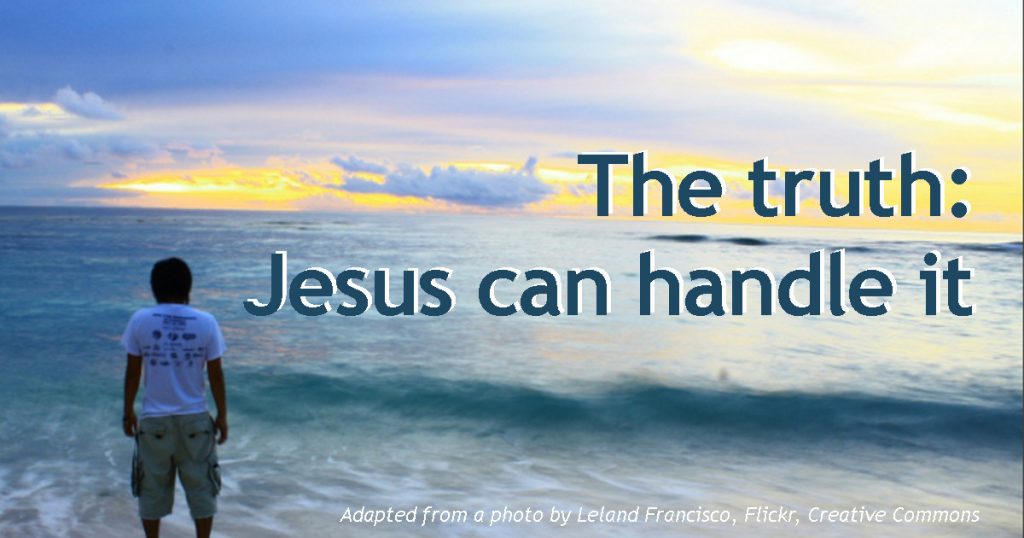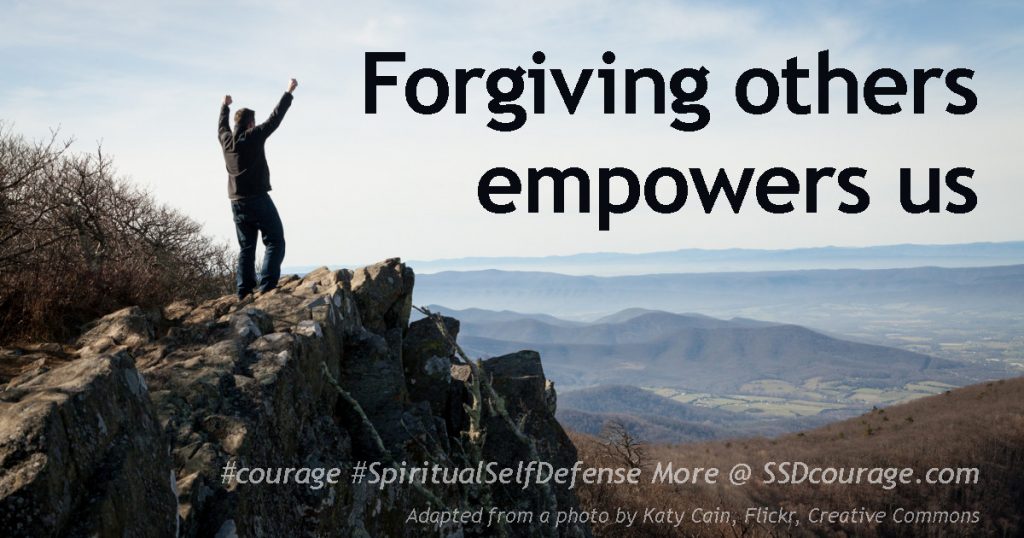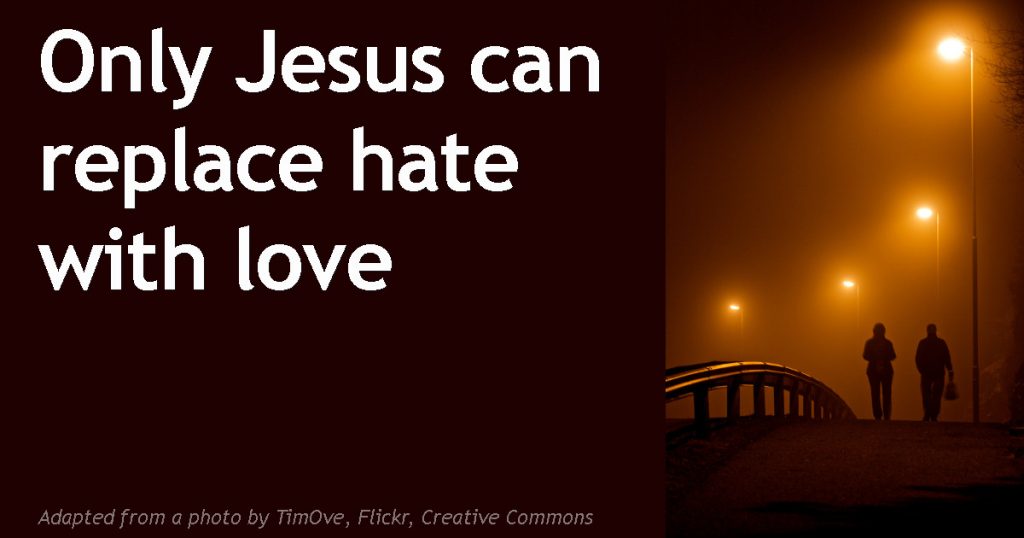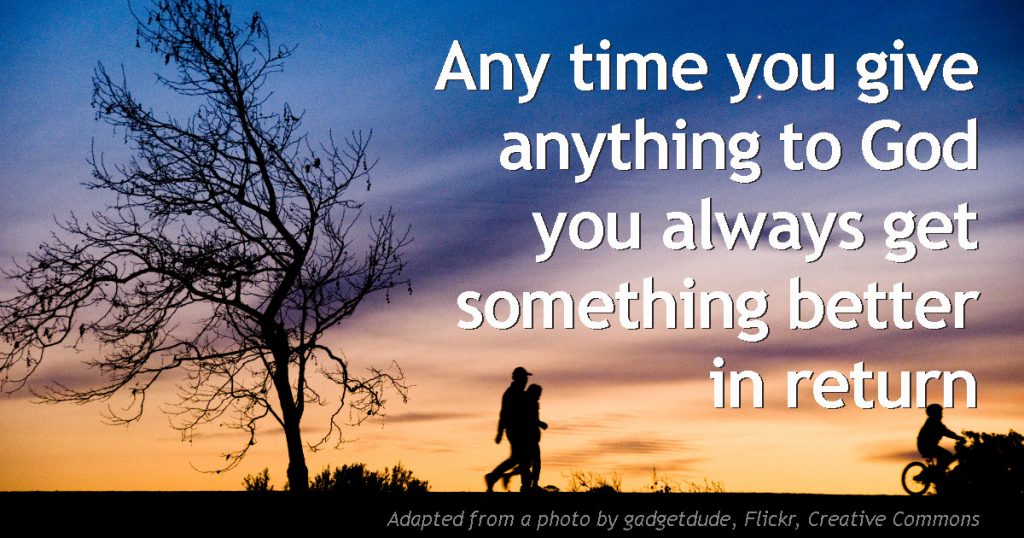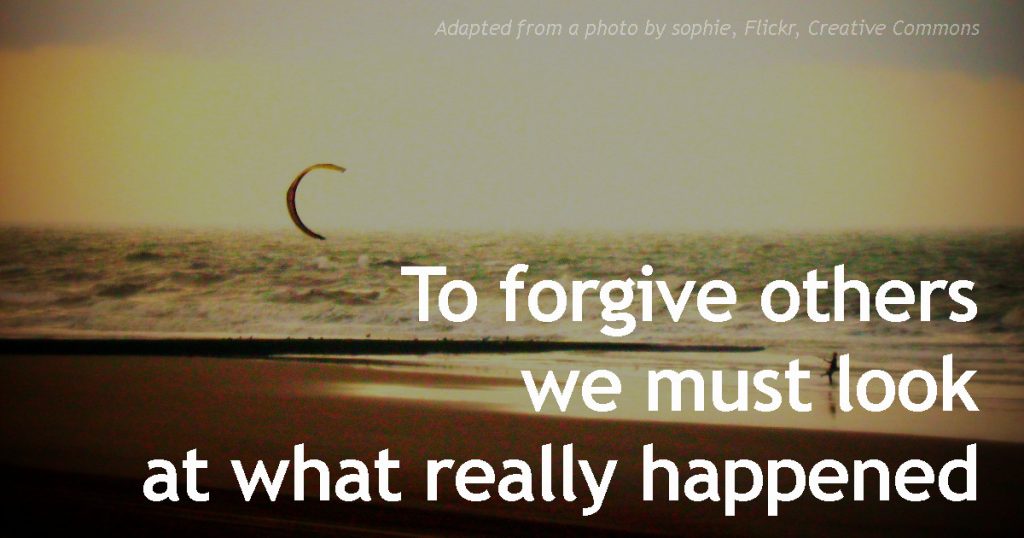
Myth #4: If we forgive, we are condoning sin
Truth: Forgiveness is not about rationalizing or minimizing the offense.
Telling ourselves that “it wasn’t really that bad” or “he didn’t really mean to…” or “she was under a lot of pressure when she…” does not resolve the anger or result in forgiveness. The offense is what it is.
Forgiveness is not the same as condoning someone’s behavior. Sin is sin. The Bible says, “Woe to those who call evil good.”
Forgiveness is not denial (“It didn’t really hurt.“) or minimizing (“I’m sure he had a good reason for raping me.”).
Rather, forgiveness is about looking honestly at what happened, and coming to an understanding that God’s grace is bigger than what happened.
More next time…
These thoughts are adapted from Chapter 5 of Dwight’s book, Spiritual Self Defense. More info here:
http://ssdcourage.com/spiritual-self-defense/
Bible trivia:
Answer from last time: Daniel, Zechariah and Mary each spoke with the angel Gabriel.
New question: Bethlehem is known as the birthplace of Jesus. It is also the hometown of what important Old Testament person?



